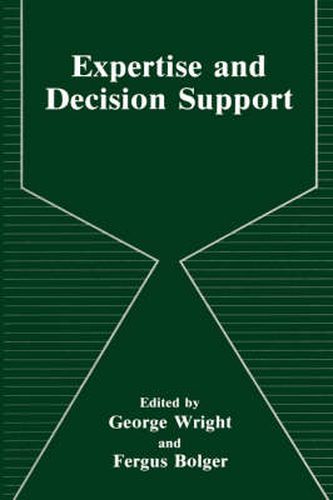Readings Newsletter
Become a Readings Member to make your shopping experience even easier.
Sign in or sign up for free!
You’re not far away from qualifying for FREE standard shipping within Australia
You’ve qualified for FREE standard shipping within Australia
The cart is loading…






This title is printed to order. This book may have been self-published. If so, we cannot guarantee the quality of the content. In the main most books will have gone through the editing process however some may not. We therefore suggest that you be aware of this before ordering this book. If in doubt check either the author or publisher’s details as we are unable to accept any returns unless they are faulty. Please contact us if you have any questions.
This volume brings together a range of contributors from Europe and North America. All contributions were especially commissioned with a view to e- cidating a major multidisciplinary topic that is of concern to both academics and practitioners. The focus of the book is on expert judgment and its interaction with decision support systems. In the first part, the nature of expertise is discussed and characteristics of expert judges are described. Issues concemed with the eval- tion of judgment in the psychological laboratory are assessed and contrasted with studies of expert judgment in ecologically valid contexts. In addition, issues concerned with eliciting and validating expert knowledge are discussed. Dem- strations of good judgmental performance are linked to situational factors such as feedback cycles, and measurement of coherence and reliability in expert ju- ment is introduced as a baseline determinant of good judgmental performance. Issues concerned with the representation of elicited expert knowledge in kno- edge-based systems are evaluated and methods are described that have been shown to produce improvements in judgmental performance. Behavioral and mathematical ways of combining judgments from multiple experts are compared and contrasted. Finally, the issues developed in the preceding contributions are focused on current controversies in decision support. Expert judgment is utilized as a major input into decision analysis, forecasting with statistical models, and expert s- tems.
$9.00 standard shipping within Australia
FREE standard shipping within Australia for orders over $100.00
Express & International shipping calculated at checkout
This title is printed to order. This book may have been self-published. If so, we cannot guarantee the quality of the content. In the main most books will have gone through the editing process however some may not. We therefore suggest that you be aware of this before ordering this book. If in doubt check either the author or publisher’s details as we are unable to accept any returns unless they are faulty. Please contact us if you have any questions.
This volume brings together a range of contributors from Europe and North America. All contributions were especially commissioned with a view to e- cidating a major multidisciplinary topic that is of concern to both academics and practitioners. The focus of the book is on expert judgment and its interaction with decision support systems. In the first part, the nature of expertise is discussed and characteristics of expert judges are described. Issues concemed with the eval- tion of judgment in the psychological laboratory are assessed and contrasted with studies of expert judgment in ecologically valid contexts. In addition, issues concerned with eliciting and validating expert knowledge are discussed. Dem- strations of good judgmental performance are linked to situational factors such as feedback cycles, and measurement of coherence and reliability in expert ju- ment is introduced as a baseline determinant of good judgmental performance. Issues concerned with the representation of elicited expert knowledge in kno- edge-based systems are evaluated and methods are described that have been shown to produce improvements in judgmental performance. Behavioral and mathematical ways of combining judgments from multiple experts are compared and contrasted. Finally, the issues developed in the preceding contributions are focused on current controversies in decision support. Expert judgment is utilized as a major input into decision analysis, forecasting with statistical models, and expert s- tems.